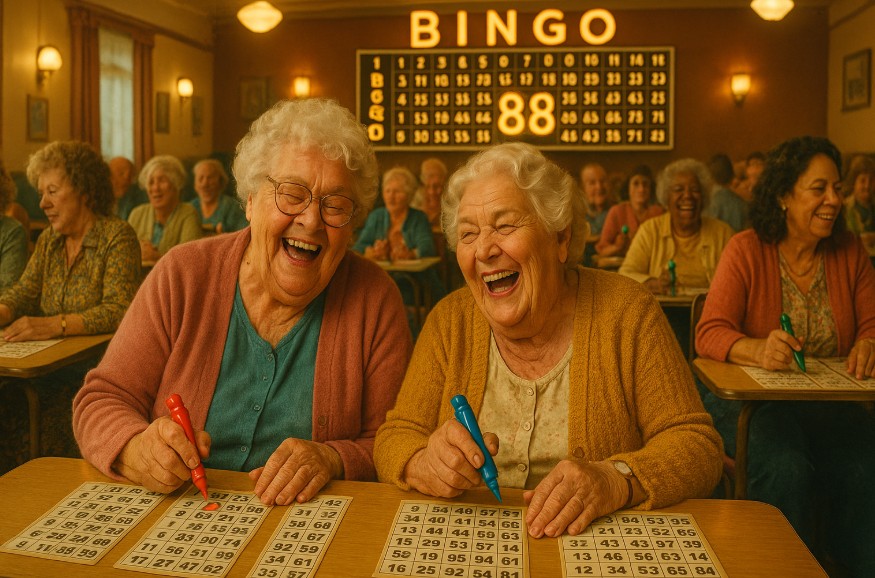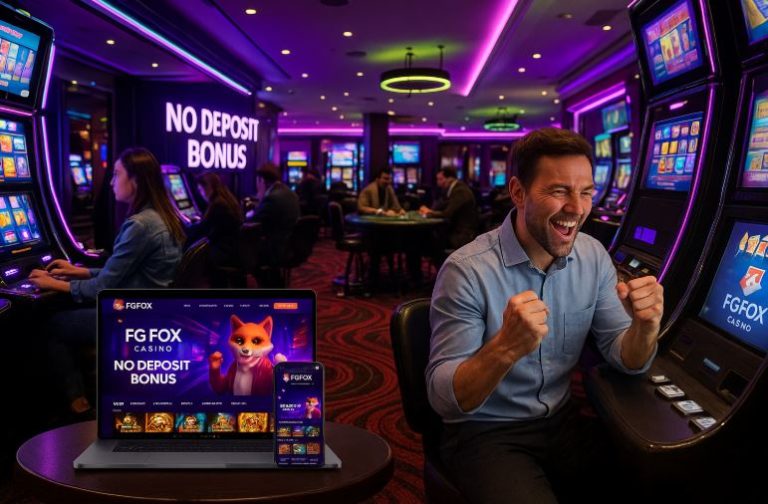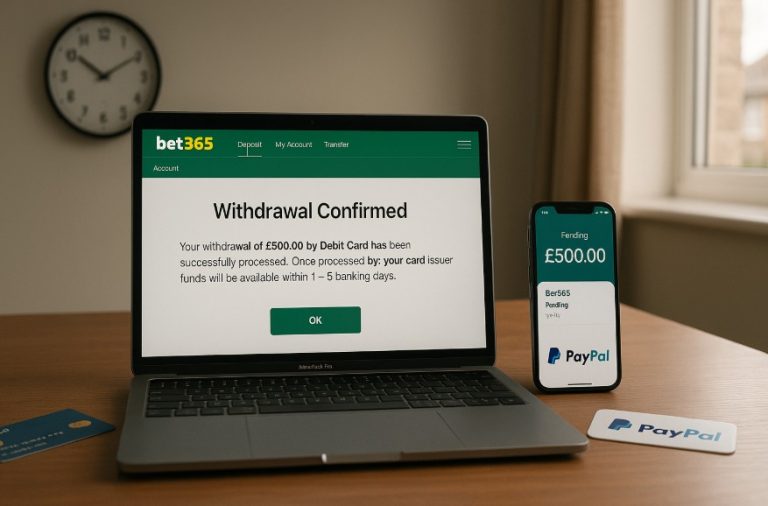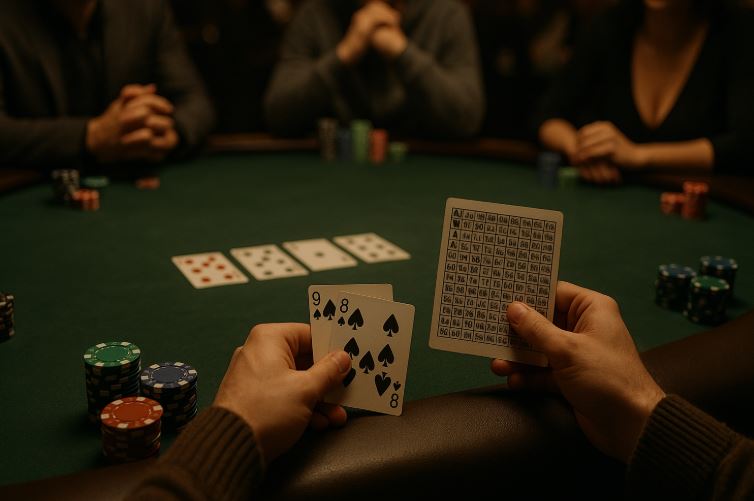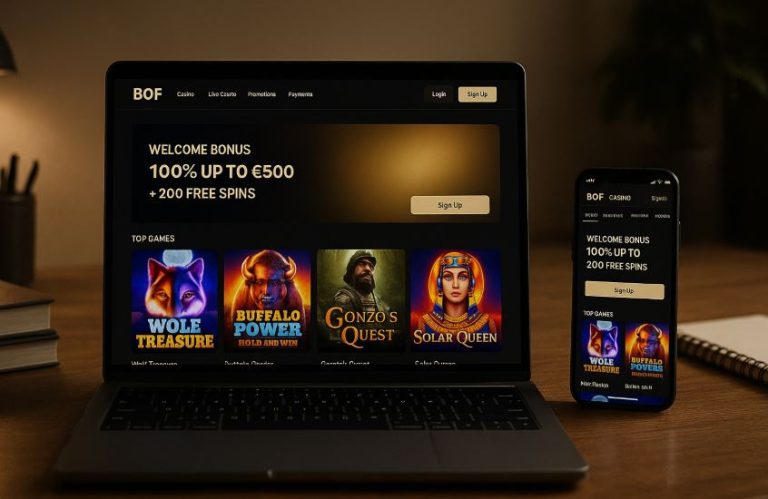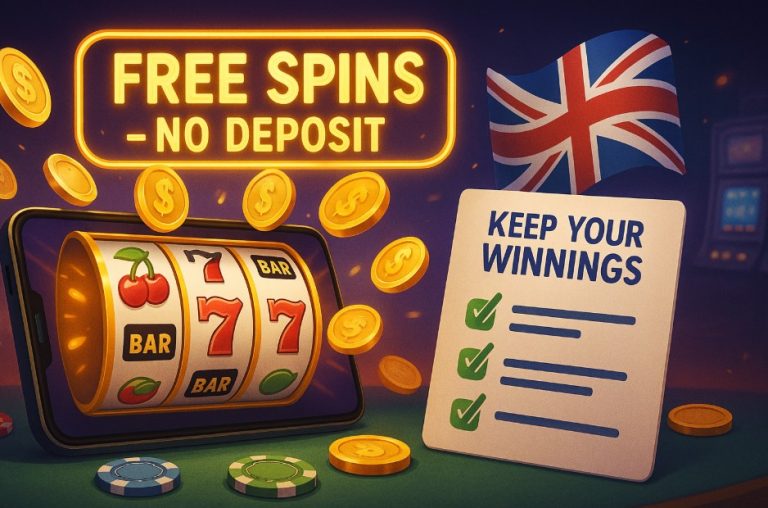What Does Two Fat Ladies in Bingo Mean? | Bingo’s Cheekiest Nickname Explained!
Bingo in the UK is not just a game, it’s a cultural experience, full of history, humour, and quirky traditions. One of the most iconic phrases in British bingo is “Two Fat Ladies,” called when the number 88 is drawn.
This cheeky nickname has long been a crowd favourite, sparking laughter across generations of players. But have you ever stopped to wonder where it came from, and whether it still belongs in today’s more modern bingo halls?
In this article, we’ll dive into the roots, relevance, and reinvention of this memorable bingo term and the game’s enduring lingo.
What Is the Meaning Behind “Two Fat Ladies in Bingo”?
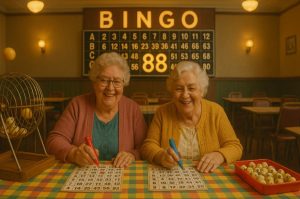
The phrase “Two Fat Ladies” refers to the number 88 in traditional British bingo lingo. When called out during a bingo game, it sparks instant recognition and often a few chuckles.
This is due to the playful visual similarity between the number 88 and the round-bodied figures it’s said to resemble. The double eights sitting side by side conjure the image of two curvaceous women, making the phrase a memorable and humorous way to identify the number.
It’s this clever use of visual association and cheeky humour that defines classic bingo lingo. More than just a funny line, the phrase represents the heart of British bingo culture, light-hearted, tongue-in-cheek entertainment designed to bring players together.
It’s this mix of imagination and comedy that has kept phrases like “Two Fat Ladies” alive for decades, embedding them in the nation’s social fabric and giving bingo its uniquely British charm and flair.
Where Did the Phrase “Two Fat Ladies” Come From?
The phrase “Two Fat Ladies” has its roots in mid-20th century British bingo halls, where creative and humorous number nicknames were developed to make the game more engaging.
After World War II, bingo gained widespread popularity across the UK, especially among working-class communities.
To liven up the calling of numbers, witty and often cheeky phrases were created. “Two Fat Ladies” is believed to have emerged during this era, based on the visual similarity of the number 88 to two rounded figures.
This approach to calling numbers quickly became a staple of British bingo culture. The use of rhyme, rhythm, and visual associations added colour to the game, transforming a simple numerical process into a lively performance. Over time, certain calls stuck, none more famously than “Two Fat Ladies.”
Though we may not know the exact first use, its widespread adoption suggests it struck a chord with the humour and traditions of British audiences across generations.
Why Is 88 Called Two Fat Ladies in Bingo?
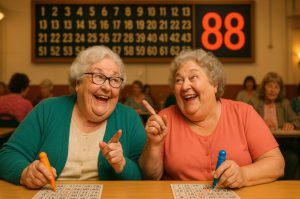
The nickname “Two Fat Ladies” for the number 88 is based on both visual and comedic interpretation. When viewed together, the two number eights resemble plump, round-bodied figures standing side by side, much like two full-bodied ladies.
Why 88 Became “Two Fat Ladies”?
- Visual Connection: Two eights side by side mimic the shape of two curvy figures.
- Humour and Cheek: British bingo thrives on cheeky, memorable language.
- Rhythmic Fun: The phrase flows well and adds theatrical flair during number calls.
- Cultural Catch-On: Its uniqueness made it stick quickly among bingo fans.
This phrase encapsulates the heart of British bingo, fun, irreverent, and community-driven. Over time, the phrase’s bold humour contributed to its widespread recognition across the UK.
Whether shouted in packed halls or seen online, “Two Fat Ladies” continues to be one of bingo’s most legendary and most debated calls.
How Did Bingo Nicknames Like “Two Fat Ladies” Become Popular?
Bingo nicknames like “Two Fat Ladies” became popular thanks to the game’s deep roots in working-class British entertainment. Originating in the mid-20th century, bingo was often played in community centres, clubs, and church halls.
Callers developed entertaining rhymes, jokes, and nicknames for each number to keep the energy high and the players engaged. These quirky sayings turned a simple number draw into a fun, theatrical experience.
Phrases like “Two Fat Ladies” stood out for their humour and visual imagery, making them easy to remember and fun to repeat. Over time, players came to expect, and enjoy, the playful language as part of the overall experience. The success of these phrases lay in their ability to unite people through shared laughter and tradition.
As a result, the lingo became more than entertainment; it became a defining feature of the bingo culture that carried on from generation to generation.
What Are Some Other Traditional Bingo Nicknames in the UK?
British bingo is packed with clever nicknames designed to bring character to the game. These calls often rely on rhyming, visual associations, or cultural references to entertain players while making numbers more memorable.
Standout Traditional Nicknames
| Number | Nickname | Explanation |
| 1 | Kelly’s Eye | Refers to the monocular vision of a character from folklore. |
| 11 | Legs Eleven | Looks like two long legs. |
| 22 | Two Little Ducks | The digits look like two ducks. |
| 66 | Clickety Click | Based on the rhyme and sound. |
| 88 | Two Fat Ladies | Resembles two curvy figures side by side. |
These traditional calls helped bingo evolve into a vibrant and social game. Each nickname brought energy and a personal touch to an otherwise routine draw, creating a game experience that felt familiar, warm, and filled with British humour.
Is “Two Fat Ladies” Still Used in Modern Bingo Games?
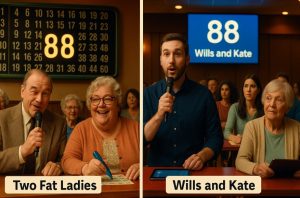
While “Two Fat Ladies” remains one of the most recognisable phrases in bingo, its use is slowly declining in some circles. Many traditional halls and online bingo platforms still call it with pride, keeping the old-school charm alive.
However, others have opted for newer, more neutral alternatives to reflect changing cultural sensibilities. In modern games aimed at younger audiences, “Two Fat Ladies” is sometimes replaced with “Wills and Kate” to maintain playfulness without risk of offence.
The shift highlights a broader trend of updating traditional elements to align with modern views on body image and inclusivity. Still, for many long-time players, the call holds sentimental value and is cherished as a fun part of bingo heritage.
Whether used or replaced, its legacy as a defining part of British bingo culture is undeniable and continues to spark conversations across generations.
What’s Replacing Traditional Bingo Lingo Today?
As the landscape of bingo continues to evolve, modern lingo is replacing many of the old-school nicknames that once dominated the halls.
Driven by the need to appeal to younger players, today’s bingo calls are increasingly inspired by pop culture, social media, and contemporary slang.
For example, instead of “Two Fat Ladies,” some games now use “Wills and Kate” for 88, a nod to modern royal figures. Other updates include replacing older rhymes with references to TV shows, internet trends, or popular songs.
These new calls are often introduced on online bingo platforms where millennials and Gen Z players form a significant part of the audience. While some purists see these changes as a loss of tradition, others view it as necessary modernisation.
The goal remains the same, to keep the game fun and engaging. This shift reflects bingo’s unique ability to adapt while maintaining its core purpose of entertainment.
Does “Two Fat Ladies” Have Any Cultural or Historical Significance?
The phrase “Two Fat Ladies” isn’t just a bingo call, it has left a wider mark on British culture. Beyond the bingo hall, the term gained recognition through popular media, most notably with the BBC cooking show Two Fat Ladies in the 1990s.
Hosted by Jennifer Paterson and Clarissa Dickson Wright, the show played on the nickname, reinforcing its presence in the national consciousness.
Historically, the phrase reflected the cheeky and informal tone that bingo became known for. While light-hearted in origin, it has also become a point of cultural discussion in recent years, with some questioning whether the term aligns with modern standards of body positivity and inclusivity.
Still, its long-standing use and impact on entertainment make it a fascinating part of the UK’s social history. Whether you see it as comedy or controversy, “Two Fat Ladies” is a bingo call that has shaped cultural conversations beyond the game itself.
How Has the Phrase Been Used Beyond the Bingo Hall?
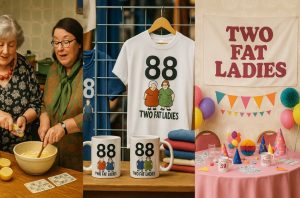
“Two Fat Ladies” has made appearances in multiple areas of British life far removed from bingo tables.
Common Non-bingo Uses
- Television: The 1990s BBC series Two Fat Ladies helped introduce the phrase to wider audiences and celebrate eccentric British culinary traditions.
- Retail Products: The nickname features on novelty mugs, T-shirts, and party items sold in quirky gift shops.
- Event Themes: It’s used in charity events and themed parties for a dose of nostalgia and humour during fundraising or entertainment nights.
- Cultural Commentary: Journalists and bloggers have referenced it in articles discussing British humour and body image in popular media culture.
These examples illustrate the phrase’s strong grip on the cultural imagination. While it began as bingo lingo, its catchy and visual nature helped it travel far and wide.
Today, “Two Fat Ladies” is not just a number, it’s a phrase loaded with history, humour, and meaning for those who grew up hearing it across halls, homes, and screens.
Is Bingo Lingo Just a Bit of Fun, or Does It Matter Today?
Bingo lingo like “Two Fat Ladies” may seem like harmless fun, but it plays a bigger role than many realise. These nicknames form part of a shared cultural experience, especially for older generations who grew up hearing them in community halls.
They serve as conversation starters, memory triggers, and even emotional connectors, especially in nostalgic settings. However, in an increasingly inclusive society, language is being re-evaluated for its impact.
This has led to debates about which calls are appropriate and which might feel outdated. Despite these changes, the core purpose of bingo lingo remains unchanged: to create joy, humour, and human connection.
Whether traditional or modern, these phrases are part of what makes bingo feel like more than just a game, they make it a unique cultural tradition. So yes, bingo lingo matters, not just for laughs but for the memories and moments it helps create.
Conclusion
The phrase “Two Fat Ladies” may have cheeky origins, but its story is one of cultural heritage, humour, and evolution. While some see it as outdated, others treasure it as a symbol of bingo’s golden age.
Whether you’re playing in a modern online room or a local hall, understanding the history of such phrases adds depth to the game. As bingo continues to adapt, the heart of it remains the same, bringing people together for fun, laughter, and a bit of luck.
FAQs About Two Fat Ladies in Bingo
What does number 22 mean in British bingo lingo?
The number 22 is nicknamed Two Little Ducks due to its resemblance to a pair of ducks side by side. It’s one of the most commonly recognised calls in British bingo.
Are bingo calls the same in every country?
No, different countries have their own bingo calls and traditions. The UK is especially known for its rhyming and humorous bingo lingo.
How many bingo nicknames are there in the UK?
There are typically 90 bingo nicknames in total, one for each number in a standard British bingo game. Many have multiple variations depending on region or caller.
When did bingo lingo first become popular?
Bingo lingo became popular in the UK after World War II, when community bingo events flourished and creative number calling was introduced to entertain players.
What’s the cheekiest bingo call besides “Two Fat Ladies”?
Droopy Drawers for number 44 is often considered one of the cheekiest calls. It’s playful, humorous, and quite memorable for regular bingo-goers.
Can younger players understand traditional bingo calls?
Not always, as many younger players didn’t grow up with these phrases. That’s why modern bingo platforms often provide lingo guides or update calls to reflect current trends.
Are bingo calls changing due to political correctness?
Yes, some traditional calls are being phased out or replaced to reflect modern values around body image and inclusivity. This helps bingo stay relevant for today’s players.
Disclaimer:
This content is intended solely for informational use. We neither promote nor endorse gambling or associated services. Please gamble responsibly.

